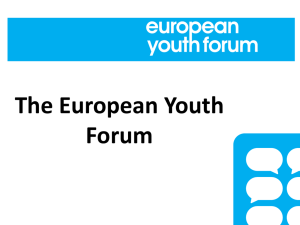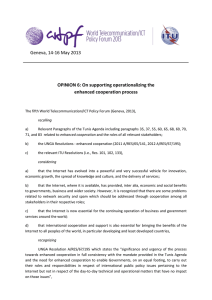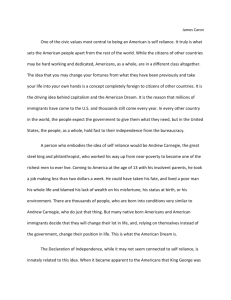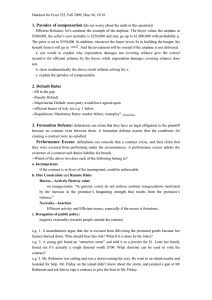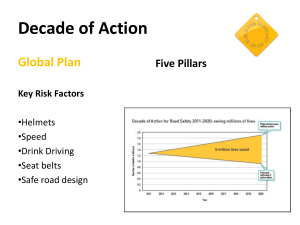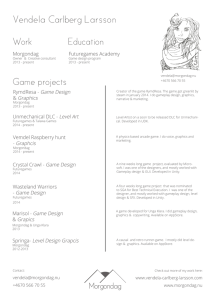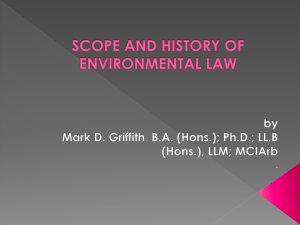Global Space Governance and the role of Space Middle Powers Dr Natália Archinard
advertisement
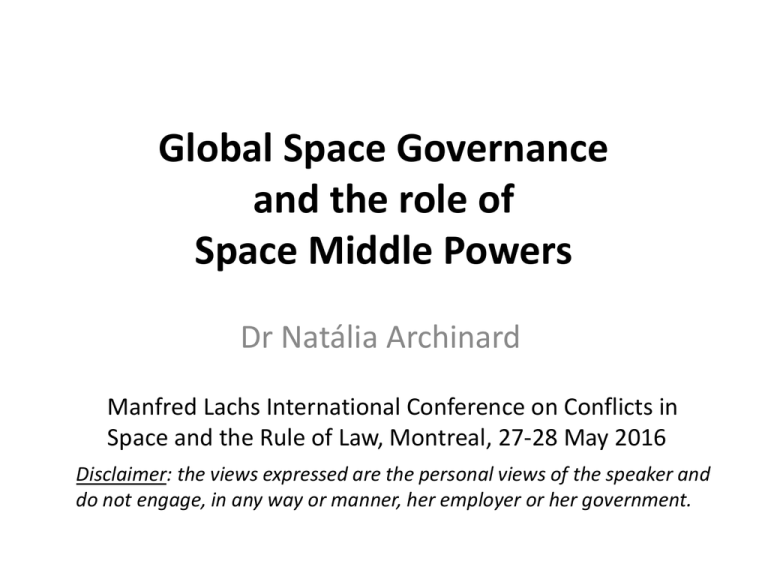
Global Space Governance and the role of Space Middle Powers Dr Natália Archinard Manfred Lachs International Conference on Conflicts in Space and the Rule of Law, Montreal, 27-28 May 2016 Disclaimer: the views expressed are the personal views of the speaker and do not engage, in any way or manner, her employer or her government. Threats to outer space activities • • • • • Use of force against space objects or systems Radio frequency interferences Cyber attacks Space debris Space weather There are more actors and new challenges. Ongoing international initiatives PPWT: preventing the placement of weapons • Draft legally binding treaty • 1st draft in 2008 at CD by China and Russia ICOC: international code of conduct in space • non-legally binding political instrument • 1st draft in 2012 to UN MS, by EU (+USA) LTSSA: long-term sustainability of space activities • non-legally binding, voluntary guidelines • bottom-up process at UNCOPUOS since 2010 GGE report A/68/189 • • • • • • • • Group of 15 Governmental Experts, 2012-13 Established by UNGA Res 65/68 (2010) Mandate: study TCBMs for outer space Consensual report welcomed by UNGA (2013) Recommendations for civil and military TCBMs Contains criteria for outer space TCBMs Deferred to UNCOPUOS, CD and UNDC -> Joint meeting of UNGA 1st & 4th Committees Difficulties and open questions • Antagonistic views as to where the priorities are: space weapons or space debris • Non space-related international tensions • Questions related to self-defence • Definitions (space weapon, armed attack, etc.) • Verification of compliance Space Middle Powers (*) A Middle Power satisfying: Reliance on space with limited autonomy High level of economic resources Global diplomatic presence (not only space) and respected opinion on international stage. They have specific reliance, hence incentive, and the potential to have a strong impact in international discussions on space security. (*) See ”The Realities of Middle Power Space Reliance”, by D. Golston with B. BaseleyWalker, UN Institute for Disarmament Research UNIDIR, with the support of Switzerland Which way forward ? It seems that there is a need for: • New impulsions by new leaders • Open, transparent and inclusive processes • Universal and representative forums • Mixed expertise (space and arms control). Could space middle powers help progress by taking the lead, individually or as a group? What about establishing an open-ended working group under UNGA mandate (as suggested by South Africa in July 2015 in NY)? Thank you for your kind attention! natalia.archinard@eda.admin.ch
